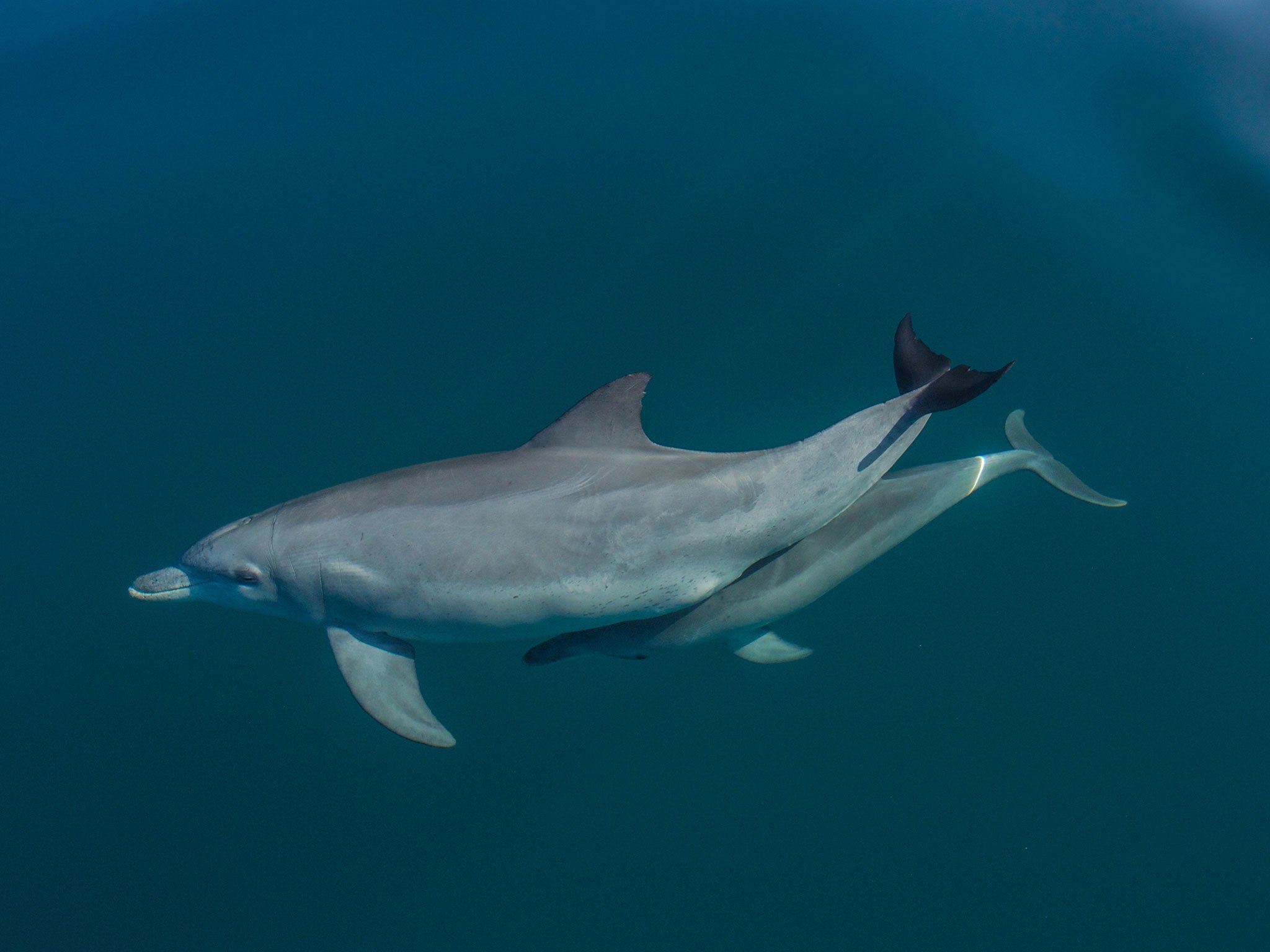Dolphins clever enough to use sponges as tools deal with climate change better, study finds
But marine heatwave linked to climate change still caused 12 per cent decline in survival rates

Dolphins which use sponges as tools to hunt prey are better able to handle the damage wreaked on their habitat by climate change, new research suggests.
Scientists studying Indo-Pacific bottlenose dolphins in Shark Bay, Western Australia, have discovered the animals which have learnt to use sea sponges to help them forage for prey on the ocean floor tended to cope better with a damaging spike in water temperature.
Dolphins are known to be among the most intelligent animals on Earth but the study, conducted by biologists from the University of Zurich, suggests dolphins which are not capable of picking up the most complex techniques from their peers are also less likely to adapt to their changing climate.
Researchers studied the dolphin population in Shark Bay for 10 years from 2007, examining in particular how a severe 2011 heatwave affected the animals.
The heatwave raised the temperature of the water to more than four degrees above its average, which reduced the dolphins’ survival rate by 12 per cent and meant female dolphins gave birth to fewer calves.
“It is particularly unusual that the reproductive success of females appears to have not returned to normal levels, even after six years,” the lead author of the study Sonja Wild said.
But as well as discovering how the catastrophic heatwave hurt the dolphin population, the scientists also found out it did not affect all dolphins equally.
Some, but not all, of the dolphins in Shark Bay are “spongers”: they have learned to carry sea sponges in their beaks which they use to protect their snouts as they forage along the ocean floor.
This complex, socially-learned behaviour is passed down through the female line and has been traced back to “Sponging Eve”, a single animal which lived more than 180 years ago.
The Zurich biologists have previously found out dolphins which use sponges have a completely different diet to their fellow mammals which cannot use the technique.

The spongers mostly eat bottom-dwelling fish which cannot be normally hunted by dolphins using their instinctive echolocation techniques.
And as well as hunting prey their less-intelligent peers could never catch, the spongers are also less affected by the heatwave problems of lower fertility and higher death rates.
“Nevertheless, our work raises concerns that such sudden events might have quite negative long-term effects even in groups of marine mammals that are known to adapt usually well to novel environmental conditions,” said Dr Wild.

Michael Krützen, professor in the department of anthropology at the University of Zurich, said the study was the first to show how marine heatwaves do not only affect simple organisms, but also have serious consequences for animals at the top of the food chain, such as dolphins.
“Marine heatwaves are likely to occur more frequently in the future due to climate change. This is worrying not only for the long-term prospects of marine mammal populations, but also for the entire oceanic ecosystems.”
Join our commenting forum
Join thought-provoking conversations, follow other Independent readers and see their replies
Comments
Bookmark popover
Removed from bookmarks